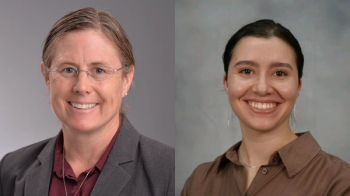
UTEP Gets USDA Grant to Attract Future Environmental Chemists
With a recently awarded grant from the U.S. Department of Agriculture (Washington DC), The University of Texas at El Paso (UTEP) will be promoting awareness of careers in the sciences, especially environmental chemistry, among students from kindergarten through every level of higher education.
With a recently awarded grant from the U.S. Department of Agriculture (Washington DC), The University of Texas at El Paso (UTEP) will be promoting awareness of careers in the sciences, especially environmental chemistry, among students from kindergarten through every level of higher education.
The USDA announced its grant in September for the four-year plan in which UTEP and four institutions of higher education in Puerto Rico will create a Center for Education and Training in Agriculture and Related Sciences.
The center will focus on education and research, outreach and recruitment, and retention and placement in sciences tied to natural resources.
The leader of the UTEP team is Jorge Gardea-Torresday, Ph.D., chairman of the university’s Department of Chemistry and professor of chemistry and environmental science and engineering. He will be assisted by a doctoral student, a master’s student and five undergraduates. The whole grant will enlist the help of more than 70 college students from the five institutions.
The UTEP students will study the fate of nanoparticles in the food chain and share their findings with K-12 students. The graduate students will teach those same students about the importance of environmental chemistry on the environment.
Gardea-Torresdey, who recently earned global attention for his research into the study of nanoparticles on food crops, is an international expert on environmental chemistry, particularly in the applications and safety of nanotechnology on plant life.
Newsletter
Get essential updates on the latest spectroscopy technologies, regulatory standards, and best practices—subscribe today to Spectroscopy.




